
Sunday, August 3, 2025
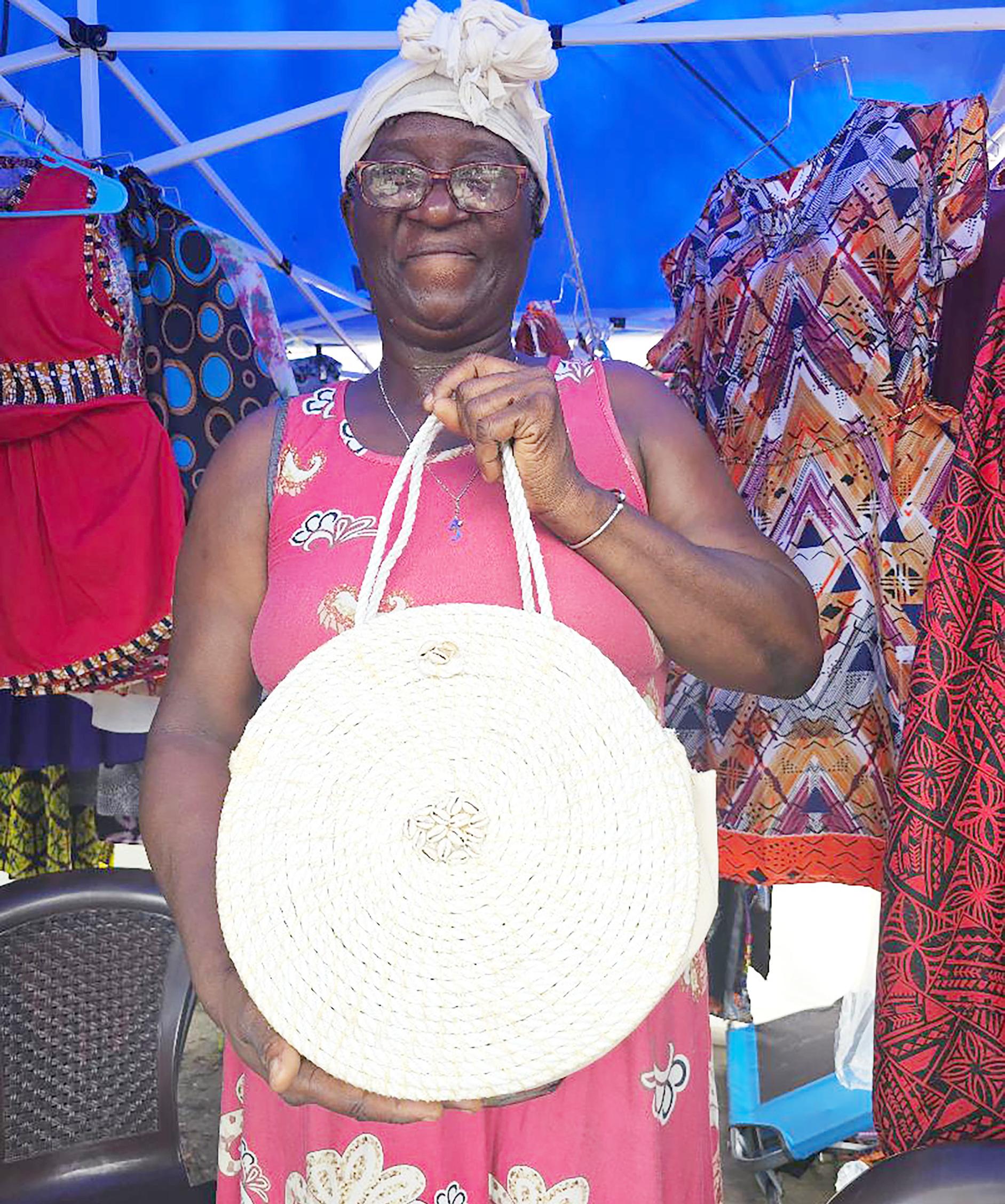


Sunday, August 3, 2025

FOR over half a century, the name Ronald ‘Ron’ Robinson has echoed through Guyana’s airwaves and lit up its stages. A broadcaster, cultural icon, and theatre pioneer, he has been a teacher, storyteller, and revered social commentator. Still boisterous and bold, Robinson recently marked an impressive milestone: 60 years in broadcasting and 70 years in theatre.
This week, Pepperpot Magazine sat down with Robinson to reflect on his life, legacy, and how it feels to be known to many as “the voice of Guyana.”
Across the fields of broadcasting and theatre, Ron Robinson has made significant contributions.
With over 2,000 interviews and dozens of stage and radio productions under his belt, Robinson is among Guyana’s most celebrated personalities. He’s the recipient of a lifetime achievement award, among several others. His journey into broadcasting began in August 1965, a year marked by national significance as Guyana moved toward independence.
Young, bright-eyed, and ambitious, Robinson hoped to join the historic broadcast team covering the independence celebrations. Though he was not selected, the experience became one of the most formative of his career. “I was very annoyed because I started in August 1965, and I expected that by May 1966, I would be competent enough to be on that historic team.
But that only happens once. And I was not chosen. I was so, so
Broadcasting
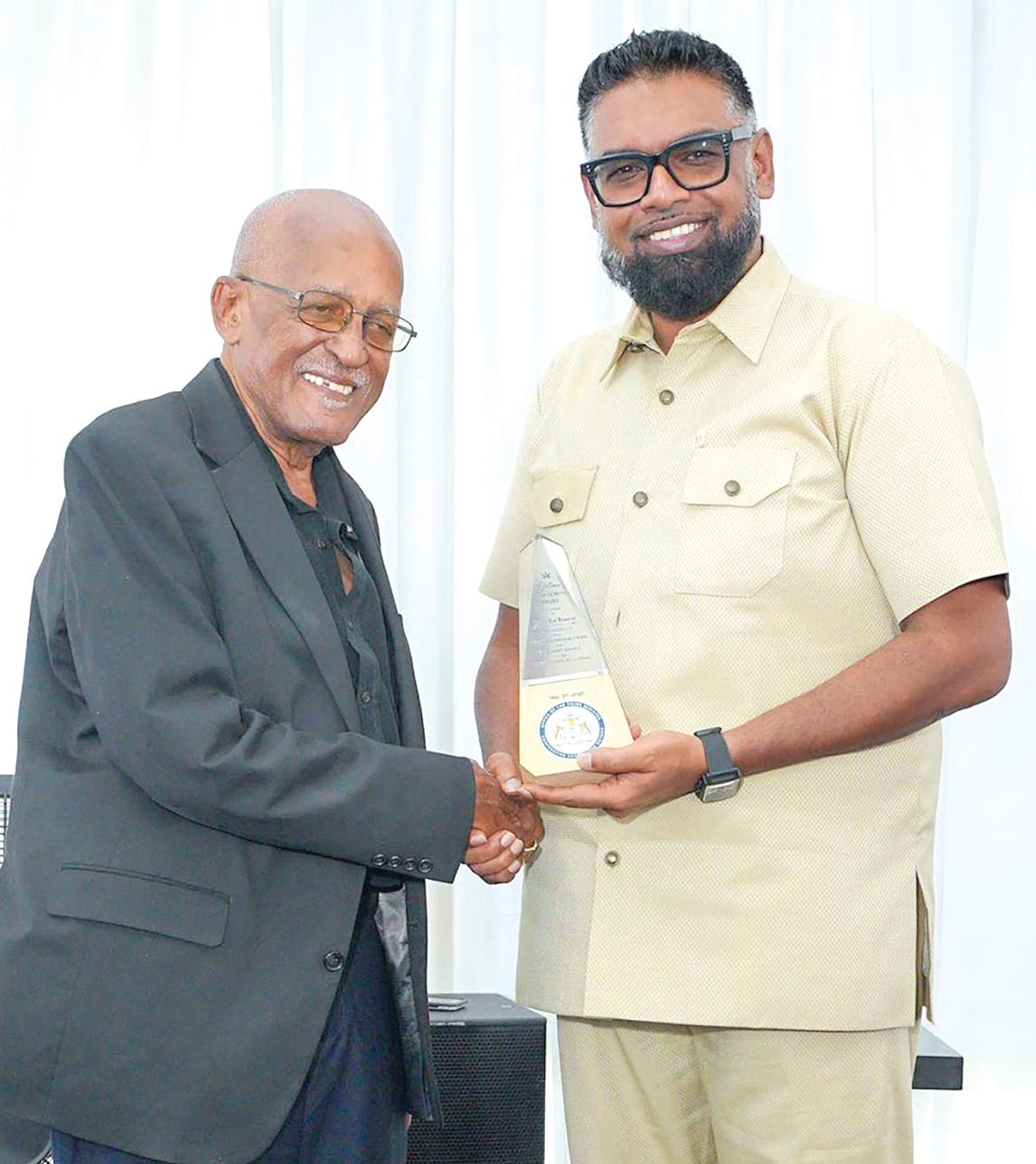
on 70 years of theatre, 60 years of radio, and a lifetime shaping Guyanese culture
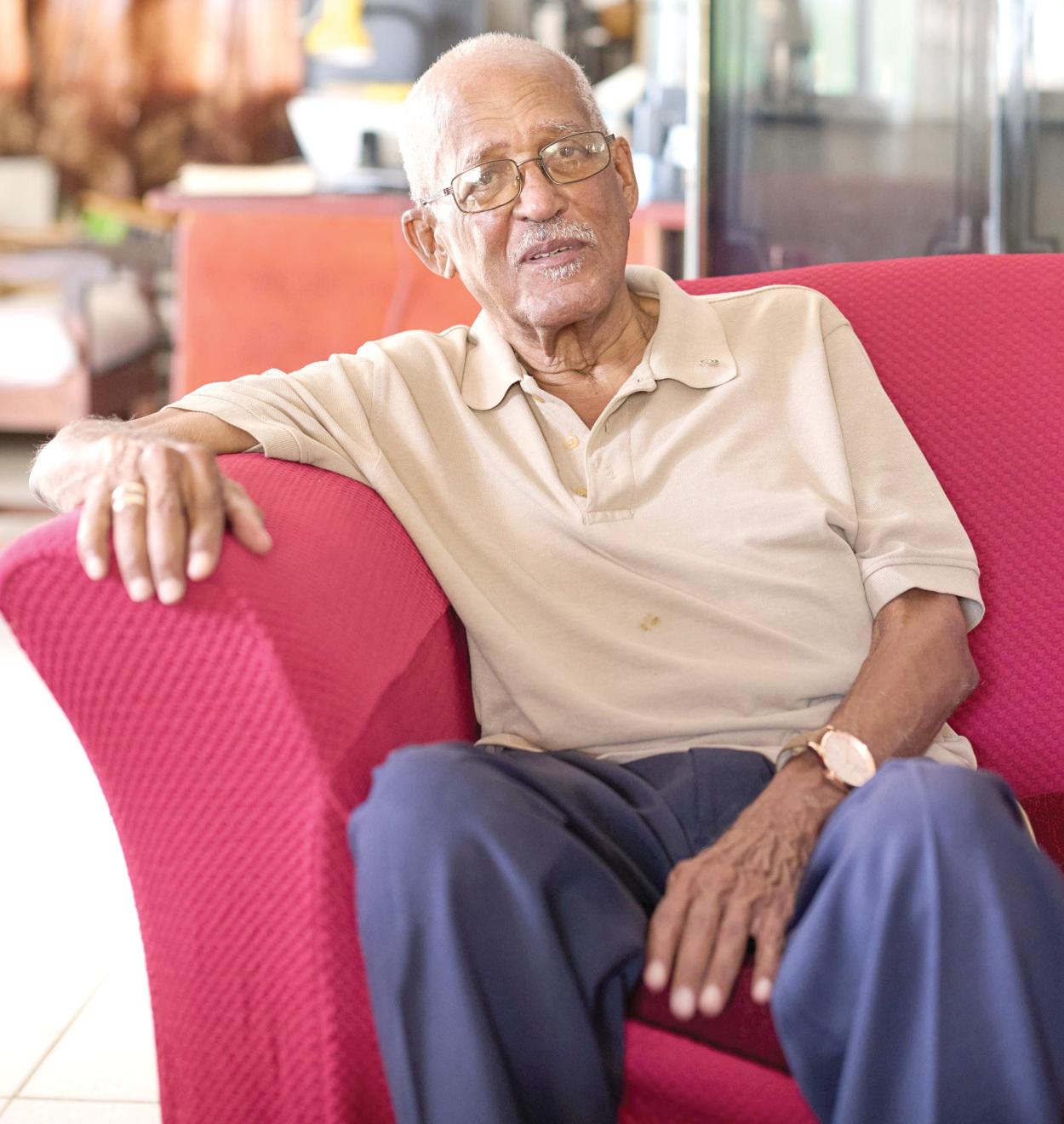
mad. But when I heard the team of high-calibre broadcasters that night, I said, ‘Mr. Khan, thank you for not asking me,’ because I would have been out of my depth,” he recalled.
Although he missed that early opportunity, the years that followed were filled with memorable milestones. One standout experience was his interview with world-renowned musician Stevie Wonder.
“I also had some memorable occasions, like interviewing Stevie Wonder when he came to Guyana and performed. A lot of people don’t know that. In fact, I had the privilege that 99% of the world doesn’t have. I actually drove Stevie Wonder from Radio Demerara on High Street back to the Pegasus. I was his chauffeur after the interview,” Robinson shared.
More than just moments of excitement, these interviews became tools for growth. Each conversation, he said, was an opportunity to improve his craft. “There were so
many interviews I did with leading personalities, government ministers, religious leaders, that stand out in my career. But what they really did was teach me to be better prepared for each new one than I was for the last,” he said. This commitment to preparation and excellence is what keeps Robinson’s voice relevant and respected on the airwaves even today.
With over 50 years of experience in both broadcasting and theatre, Robinson has witnessed significant changes in both industries. While Guyanese creativity continues to thrive, he believes that more needs to be done to preserve authenticity – particularly in the radio industry.
He’s especially passionate about keeping the "Guyanese sound" alive, urging young broadcasters to Turn to page III
By Michel Outridge
DAVID Jones is the Chairman of the Emancipation Committee of the First of August Movement in Buxton Village. The movement is a group that spearheads the annual Emancipation Day celebrations, commemorating the end of slavery in 1834. He stated that the organisation was established in 1969 and has played a significant role in the community since then.
Jones said the movement organises a week of activities, including cultural events, historical discussions, and community gatherings, to honour the legacy of the ancestors and promote cultural preservation and village renewal.
He stated that the key aspects of the First of August Movement and Buxton's Emancipation Day celebrations include Emancipation Day: August 1 is a significant date in Guyana, marking the end of slavery and the beginning of a new era for formerly enslaved people.
Jones added that Buxton's role as a historic village with a strong African-Guyanese heritage plays a prominent role in Emancipation Day celebrations.
Jones said for cultural preser-
vation, they emphasise the preservation of African culture through music, dance, storytelling, and traditional foods.
He reported that village-renewal activities focus on the revitalisation of Buxton and other villages, encouraging community involvement in areas such as education, agriculture, and economic empowerment.
And other key events often include church services, libation ceremonies, village feasts, and discussions on the history and challenges faced by African Guyanese.
Jones reported that the celebrations often highlight themes of freedom, cultural empowerment, and the need to address ongoing challenges faced by African-Guyanese communities.
As a well-respected local of the village, Jones was a telecommunications engineer who spent most of his adult life working with the state-owned telecommunications company until he retired and established his own small business.
He said that this year, being elections year, they did not plan as much as in previous years, but notably, the traditional activities in the village took place as usual.
Jones reported that the libation
ceremony took place with invitees from the religious groups across Guyana, and it is set to take place at Company Road, Buxton, by the site of the 1938 Emancipation Monument.
He told the Pepperpot Magazine that libation is a form of paying tribute to their ancestors, who were slaves after being freed, and the event is set for August 31, 2025.
The village leader stated that the event occurred before 6 p.m. that day in the village, after which community members will perform a cultural presentation.
Jones related that the cultural activities will take place at Middle Walk, Buxton, where Opposition Leader Aubrey Norton is expected to attend and speak, signalling the launch of the A Partnership for National Unity (APNU) elections campaign this year.
“As a Buxtonian, our goal is to impart knowledge to the young people. We are only here for a time; the youths have to carry on the village traditions.
It will pass through generations to come, and it must go on,” he said.
Jones, who has been a part of the First of August Movement in Buxton for five decades, said it is
From page II embrace their local identity rather than imitate foreign accents. “The imitation of Jamaicans, of Americans, we call ourselves Guyanese broadcasters, yet we’re trying to sound like something else. Does that mean we’re ashamed of being Guyanese, or ashamed of our accents?” he asked.
Robinson also reminisced about a time when local music was a staple on the air. “At one time, years ago, you had to play a Guyanese tune at least every quarter-hour. That was the rule.
So you had to find music that fit your programme and play it within every 50 minutes. That meant you’d play two, three, even four Guyanese songs every hour, all day long,” he added.
As a founding member of the Theatre Company of Guyana and the creator of productions such as The Link Show and Merundoi, Robinson remains a passionate
advocate for theatre and the arts. “I think theatre is a mirror to society, a reflection of ourselves.
Whether it’s drama, comedy, or satire, theatre allows society to see itself in ways that traditional media can’t,” he explained. He believes both the public and the government have vital roles in supporting the arts. “Every country where the relationship between the people and the government is strong is one where the arts are encouraged, where journalism and theatre are seen as essential.”
Last Thursday, Robinson celebrated 70 years in theatre, an extraordinary milestone. It’s no surprise that many now refer to him as “the voice of Guyana,” a title he wears with humility.
“I think maybe it’s just because I’ve been there so long. I’ve been on air before many people; maybe even their parents, were born. So I guess
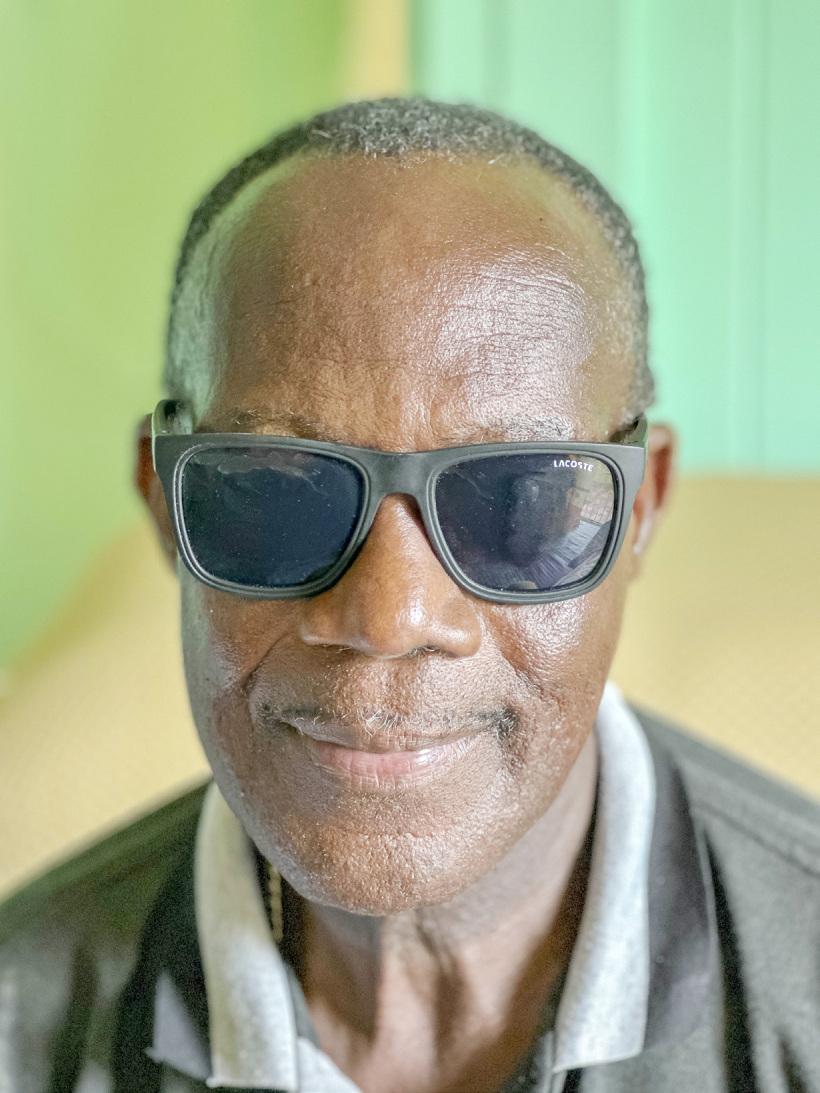
his hope that the young people will carry on the grounded traditions in the village, since they remain resolute in their beliefs and know of the strength of their forefathers, but it must be ingrained in their way of life.
He revealed that young people have a willingness to learn, but they have encountered hard times. As he described it, times have changed from those of the past, and people have less interest in traditions and history.
Jones told the Pepperpot Maga-
zine that for far too long, a stigma has been attached to Buxton. But as a resident of Sideline Dam, he knows the quality of the people they have produced—many intellectuals and others—whose dedication did not go in vain.
As a seasoned traveller of the world, he said he lived in the United States of America (USA), travelled the Caribbean, but he is very much at home here in Buxton, his home village, where he was educated and spent the better part of his youthful days.
it’s a bit of respect for the years I’ve put in,” he said. “They call me Mr. Radio, but when someone else gets to my stage in radio, the same thing will happen to them.”
Today, Robinson can still be heard on the airwaves, offering listeners good music and thoughtful commentary, all steeped in Guyanese culture.
Offering advice to aspiring journalists, he emphasised the importance of passion: “Enter with passion. Do it because you love it, whether it’s radio, print, or television.
You should want to wake up and feel good about going to work.” As for him, that passion has never faded. “I wouldn’t still be doing this if I didn’t love it. I can’t seem to get rid of this thing called radio or theatre. And as I always say, on August 1, we celebrate Emancipation. But for me, August 1, 1965, I was emancipated by radio.”

By Michel Outridge
IN Guyana, Emancipation Day, celebrated on August 1, commemorates the end of slavery. It marks the day in 1838 when all enslaved people in Guyana were finally granted their freedom, following a period of apprenticeship after the Slavery Abolition Act of 1833.
This day is a significant national holiday, celebrated with vibrant festivals, traditional attire, and cultural performances, honouring the resilience and contributions of African Guyanese.
Evelyn Estwick, a Buxtonian, is no stranger to cooking up a storm for Emancipation activities in the village.
That day, she shared pots of cook-up rice with beef, pork, and chicken, conkee, cassava pone and homemade mauby with fellow villagers.
The elderly woman says the task is no easy feat—to prepare such large quantities of food all by herself—but she has already
set the mauby in a large plastic barrel and added the ingredients for it to ferment (draw) to bring out the ideal flavour of an authentic homemade mauby.
Estwick, who resides on Ogle Street, Buxton, East Coast Demerara, told Pepperpot Magazine that every year on Emancipation Day, she gives it her all to serve up a proper mix of creole dishes from her menu.
She explained that it is a tradition she adopted from her mother, who has long since passed away, and is fulfilling that tradition that has been passed down to her.
Estwick, a determined believer in giving back to society, says she isn’t as young as she used to be, but she will be facing the pot alone, and welcomes any help in the kitchen.
She stated that for more than 30 years, she has been making her signature cook-up rice to feed others, especially on Emancipation Day, which she considers her Christmas.
The prepared meals are packaged and distributed in the village by the Market Square—even the shut-ins and bedridden

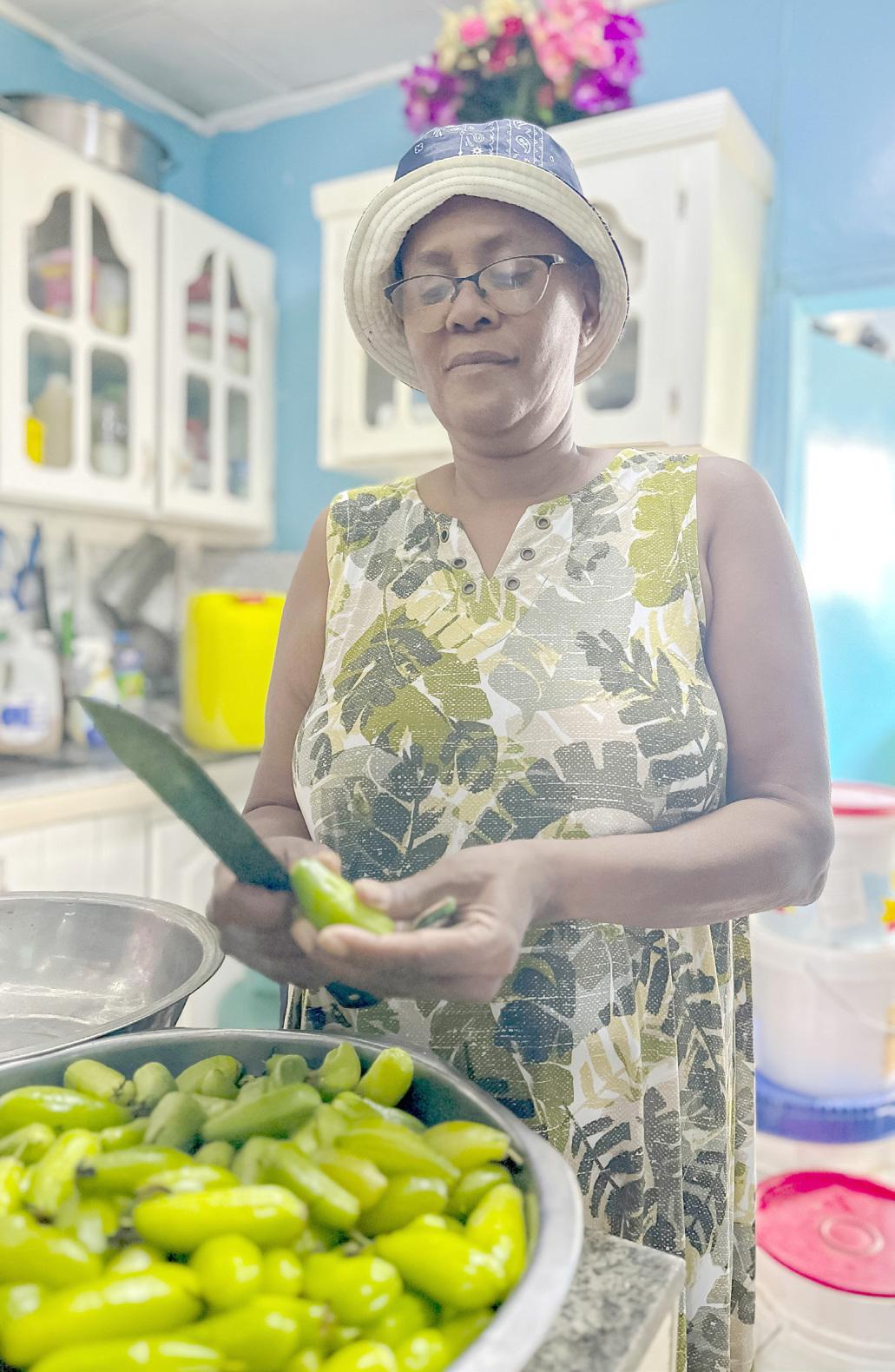
A local, Gavin Dick, would drive to the homes of his fellow Buxtonians to personally deliver the meals.
Estwick added that his contribution is noteworthy, and she commends the young man for his assistance each year.
She stated that she would prepare black eye and red beans with callaloo and chicken cook-up rice, as well as a special beef and pork cook-up rice.
Estwick calls Emancipation Day her “Fest Day,” the time she contributes to the community, since it is a tradition in the village. Many people do not cook because they
are aware of “Fest Day” and feel obligated to carry on the tradition.
“I come and meet this tradition, used to watch my mother cook and prepare meals on this day, and when I grew and could assist, I did it too, so this tradition must go on and I am cooking three big pots this year,” she said during an interview with the Pepperpot Magazine days before the big day.
The Buxtonian reported that she did all the cooking out of her own pocket, but anyone who wants to lend a hand is welcome to do so. It usually costs her about $200,000 to fully prepare the three large pots of cook-up Turn to page V



From page IV
rice, conkee, cassava pone, and mauby.
Estwick pointed out that it is a once-ayear event, and that’s it—she would continue to play her part until she can because she knows the people look forward to it. The tradition must stay alive.
She added that the Market Square in Buxton would come alive on Emancipation Day—some people show up with their own bowls, and often food would be delivered to others at their homes.
Estwick related that she is a member of the Buxton Emancipation Committee, along
with 20 other members, including two elderly women from the village who were unwell due to travel abroad.
The 64-year-old does a lot of volunteer work behind the scenes, but often it goes unnoticed.
She does way too much by herself but
vowed to succeed her late mother, Enid
wards, who was a very benevolent woman of Buxton.
Estwick revealed that her mother passed away at age 49, a very hard worker whose dedication was exemplary.

By Michel Outridge
JUNEANN Taylor is a talented seamstress who, despite being 60 years old, doesn’t let that prevent her from creating many outfits for every season, including the most anticipated Emancipation Day, celebrated annually on August 1 in Guyana.
This year, like most years, she is one of the many vendors with her own booth along Main Street, near Georgetown Avenue, to display her products.
A mild-mannered woman whose dedication to her work is unmatchable, she speaks of her work—sewing all kinds of outfits—and she shows off her newest pieces for Emancipation Day, all reasonably priced too.
She has in stock a wide variety of dresses, skirts, blouses, shirts for both men and women, jute and leather bags (all handmade), beaded chains, necklaces, waistbands, earrings, bracelets (also handmade), hair ties, bandus, headdresses, specially designed slippers and sandals, and a lot of other clothes, all themed for events.
Taylor told the Pepperpot Magazine that her sewing journey began at a young age, when she tore her school uniform and her mother told

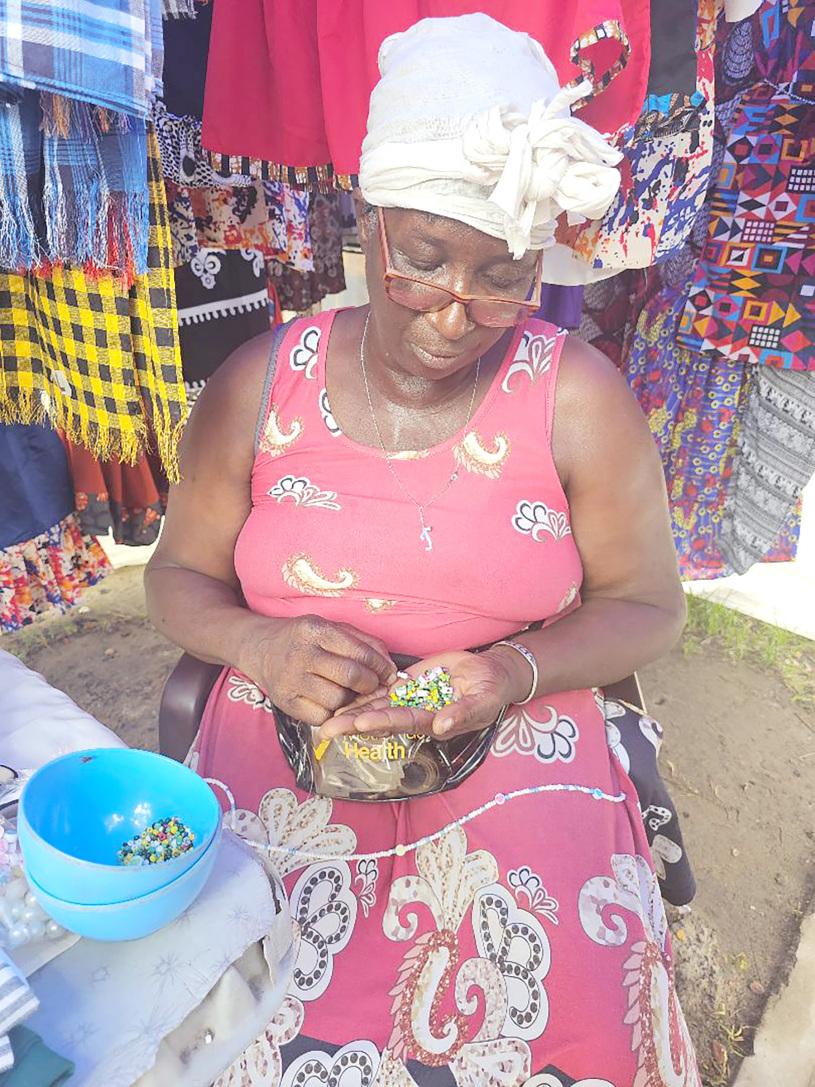
her she would have to mend it herself by sewing.
She said after a few tries—and after being given some lashes for tearing her school uniform—she managed to stitch it. This event

caused her to realise her potential in the skill.
Taylor reported that when she exited the school system, she enrolled at the Carnegie School of Home Economics for classes in sewing, cake decorating and floral arrangement.
After she had upskilled as a seamstress, she began her adulthood earning from it and acquired her
first sewing machine (the old-fashioned brand, a pedal machine) from her grandmother at age 16.
Taylor added that today, she sews from her home at La Parfaite Harmonie, West Bank Demerara, but is originally from East La Penitence, Georgetown.

She is the mother of seven and a grandmother of six grandchildren, and a single parent who is in desperate need of a heavy-duty overedging
sewing machine to make her sewing days easier.
She saw the very sewing machine she needed at Courts, but simply cannot afford to buy it due to financial constraints as a pensioner.
The elderly woman told Pepperpot Magazine that she enjoys all aspects of arts and crafts and is a multi-talented individual. In her spare time, she would make from Turn to page XVIII


PEOPLE are sometimes sick and then die, not because of a lack of food, but because of a lack of love!
Everyone needs love. Young children need love, and it is the same for elderly people. Some people behave as though they can operate in isolation, but they, too, need love.
Love can sometimes be stronger than medication. When a child is sick and receives the attention of either parent, it is amazing to see the child's recovery.
Medication often heals the physical parts of people. However, when someone is broken-hearted or depressed, medicine may not cause them to recover.
As love is cultivated, the duration for people to be restored to good health varies. Many medications may require people to use them for a certain number of days, for example, two times daily for seven days. However, with love, it may be the connection with someone they respect and adore, and after just one interaction or conversation, all the challenges seem to disappear. People need more love and less medicine!
It is challenging to love someone without having a personal connection with them. This relationship is not limited to companionship, but encompasses many other types of relationships. People without companions may still have access to many different relationships. The challenge for some is that they do not establish relationships with others, so there is no one to share their love with them.
Because death is often sudden, do not hold negative thoughts about others in your heart. It is concerning to see how some people harbour negative feelings about others for years. When this happens,
the person who has treated their heart like a garbage receptacle may soon suffer from an illness for which medical professionals may not have any medication.
Forgiveness is something that every human wants to offer to others. Many animals forgive each other because they have to co-exist in the same area, and they may need each other’s help.
People sometimes go to work depressed because someone has not forgiven them. They could be distracted because of this, leading to accidents, as their heart is heavy.
The mistakes some people make, which cause them to live their lives in certain ways, may be related to a lack of forgiveness. In many intimate relationships, if something affects one person and the other chooses not to forgive them, the offended partner may feel belittled or uncomfortable, and this can persist for an extended period.
When such things happen, it often affects the relationship, and over time, both people no longer see joy in each other. If they are to forgive each other and work toward improvements, then that joy will quickly return to them, and they will begin to enjoy each other’s company.
People must practise forgiveness every day! They should try not to let the day end without seeking forgiveness from the person who offended them. Life is too precious to hurt others or to hold the hurt others caused within your heart.
If someone you know died suddenly because you did not forgive them, how would you feel? Every person has a purpose, so forgive others and allow them to live to their full potential. Be a source of encouragement and help them to become better. Be the shoulder they can lean
on. Be willing to see beyond people’s faults and to help them, as your best efforts will not make you perfect.
There is no question whether people will die. When they die, there is nothing that you can do to help them, even if they are close friends or family members.
When a person dies, the body that allows the spirit to operate is no longer available. Therefore, you are unable to touch them. They are unable to spend time with you. Even if you cook their favourite food, they are unable to consume it. Dead people cannot do the things that living people can do.
Love everyone, as you may not have the opportunity to wish them goodbye before they depart to a place where many others have gone, and many more people will go.
When a woman is pregnant, there is a possible timeframe during which the baby will be delivered. For example, seven months or nine months. Many babies are born within less time than average. However, their birth is predicted within a certain time frame. Unlike birth, death does not provide a timetable.
If a person enrols at a learning institution, they will know of the cost and duration of their studies. Once they study according to the timeline and timetable provided by the learning institution, their studies are expected to be completed at a specific time. Death has no timetable and often does not warn when it will impact someone’s life.
Some people go to bed one evening, and when others expect them to wake up for
another day to continue with life, they receive the depressing news that the person did not see another day.
A workmate sometimes speaks with one of their colleagues at the end of their workday, and the next news they hear about that person is that that person did not live to see another day. While death is universal and will happen, no one knows when it will happen and who it will happen to.
There is an old saying that death does not respect people—even rich people die and leave behind all they have. People who own banks will also die. The richest man
and woman will even die. Money may help to prolong the life of people who have a medical issue, but it does not stop death.
Money is made to meet the financial needs of people and must be spent on earth. To spend money, a person must be alive. Some people have saved a substantial amount of money over many years, and when they pass away, someone else misuses the funds and spends it quickly, without accomplishing anything of substance.
Savings are excellent,
and people must have some savings. However, what importance will saving have if you cannot enjoy what you worked for? It is always important to make sacrifices, and those who save have something to show for it. But save some money and spend some.
For more information about Geary Reid and his books: Amazon: http://www.amazon.com/author/gearyreid Website: www.reidnlearn. com
Facebook: ReidnLearn
Email: info@reidnlearn. com
Mobile #: 592-645-2240.


THE emancipation from chattel slavery, that we celebrate on the 1st of August yearly, is one such significant event that has varied realms still unexplored, that cannot be left unaccounted for and unoccupied, lest it be squatted upon by hostile vagrants and readjusted, with a new aim to suit retarding and redefining presumptions. Emancipation was
followed by years of conflict to initiate the simple levels of rights and privileges, common to a new and enlightened age unfolding.
True, the plantocracy had become deities of a kind. The plantation owners possessed more power at times than the Colonial Governor; in fact, they were the powers that be. Although some level of indentured workers was import -
ed, these people did not meet the stringent criteria that the sugar plantations required. Thus, there were always conflicts, and methods employed to strangle the new villages that the emancipated had purchased, as well as to strangle the business services of the day that the emancipated offered to the town of Port Stabroek and what the township required. And of course,
the plantocracy hurried to undo the efforts of the worthy efforts of their former slaves.
The emancipated had, with the monies they saved, bought plantations that some planters had surrendered for sale. These became the first villages of the then British colony of ‘Guiana.’ Hence, they were subject to pay taxes, and this they paid for services of drainage
and irrigation that were not supplied. Instead, their taxes were used to finance indentured labour. This led to hardships in the villages. But they did not cease the hostilities and schemes of the plantocracy. They also had targeted the services that the African emancipated were now offering in the township. They were the equivalent of Turn to page XI
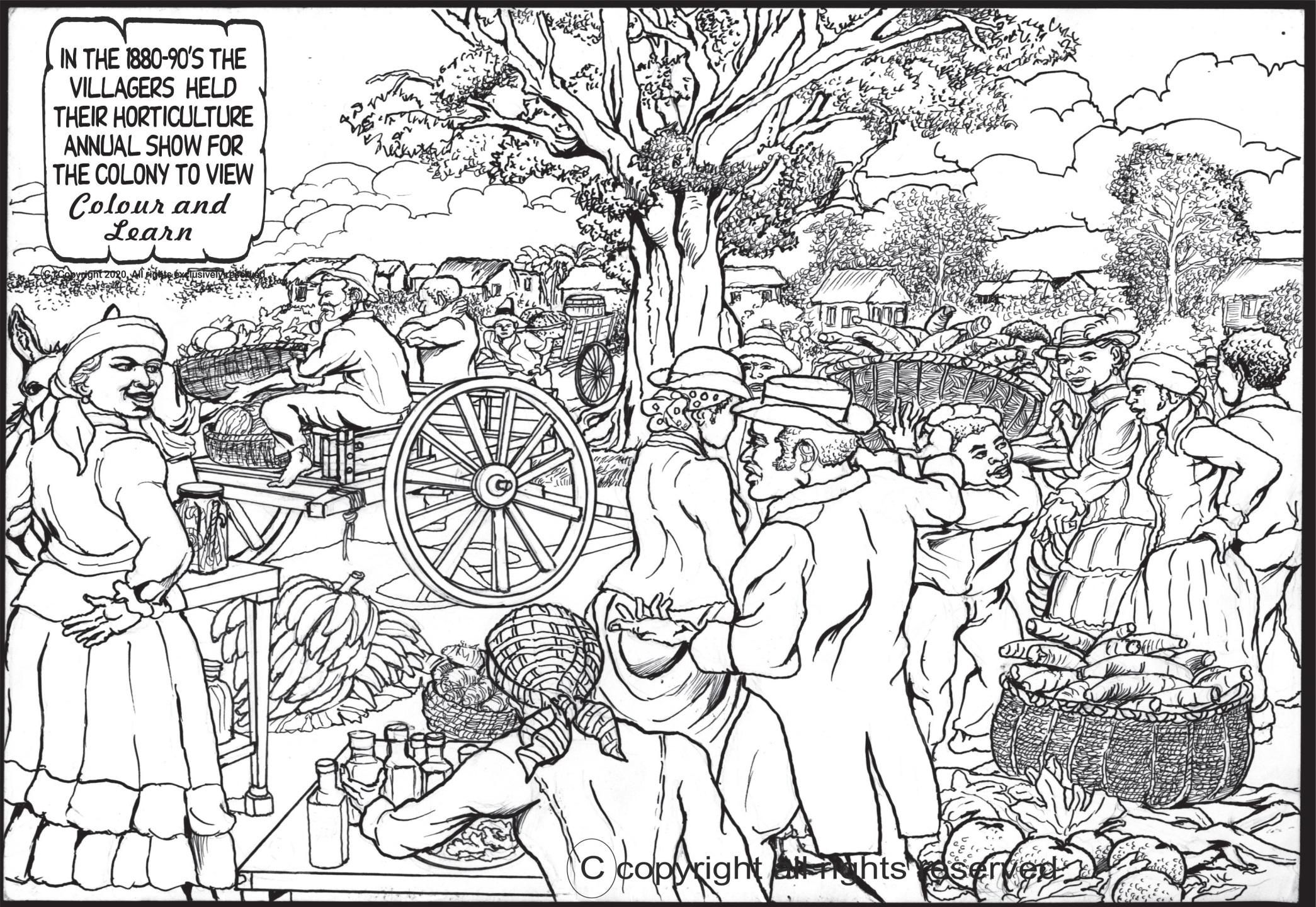

As we are all stressfully aware, our 2025 National and Regional Elections are nearing. It’s not something that psychologists usually weigh in on. However, beneath the democratic ritual lies a complex web of psychological biases and social dynamics that influence how and why we vote. It becomes a time where identity, emotion and perception often outweigh logic and policy.
Election season heightens emotional responses, where suddenly, everything feels personal. A candidate’s face on a billboard triggers a memory, a political party’s promise reopens a generational wound, a single WhatsApp message ignites a family feud. But why does this happen? Why do elections—a supposedly rational process of leadership selection—awaken our most irrational sides?
As it often does, the answer lies in psychology.
At its core, the election season activates the oldest parts of our brain—the ones wired for survival. When we perceive a threat, real or imagined, the amygdala (our brain's alarm bell) kicks in. It doesn't care if the threat is a wild animal or a politician with a slogan you disagree with—it just screams: not safe; defend yourself. Suddenly, we aren't debating
policies, we’re defending our identities—and that's when things turn tribal. For many, voting is not just a civic duty—it’s a psychological trigger, and our humanity seems to take a backseat to our political affiliations. Our fears often don’t need to be spoken aloud; they live in our stories and our silence.
In Guyana, where politics deeply intertwine with race, class, and legacy, elections don’t just ask what kind of leader do you want?—they ask who are you loyal to?
We’re not just asked to vote, but rather to choose sides— and the human brain is hardwired to respond to that with emotion before logic. We begin to think in binaries: Afro-Guyanese or Indo-Guyanese.
Us or them. Safe or unsafe. It’s not because we’re naturally divisive—it’s because our brains crave belonging. And when fear rises, we retreat to the groups where we feel safest.
Elections also stir deep psychological needs: the need to belong, to feel heard, to feel in control of our future. Political parties, intentionally or not, capitalise on these needs. They speak to our fears and offer identity in return. It’s seductive but also manipulative.
Elections by design highlight differences—but it's our reactions that turn those

differences into divides. Politicians campaign, and the media sensationalise, but it is we, the people, who must decide what to do with our emotions. Because after the last vote is cast, we’ll still have to live together, and our relationships, both with each other and ourselves, should not be casualties of political tension.
It's the most common question asked right now— Who are you voting for? While I’m certainly not here to answer that, I’m here to caution you of some potential biases that make these decisions for us.
Voters aren’t spreadsheets—we’re storytellers— and our votes are often driven by affect heuristic, a mental shortcut where we rely on emotions for decisions.
• The Halo Effect – a common cognitive bias where our impression of a single positive trait influences our perception of other positive traits. For example, if we believe someone to
be competent, we may also perceive them to be honest.
• The Bandwagon Effect – results in voting for the candidate that appears to be in the lead, regardless of what we truly think about them; it’s human nature to want to back a perceived winner.
• Prospect Theory – which I believe to be the most important—specifies that we are more motivated to avoid losses than to achieve gains. In Guyana, I believe we are more likely to stand against someone than stand for something. We don’t often support a party’s actions; we are just scared of what will happen if the other wins. How can we avoid these biases?
Choose Values Over Emotion
The human brain, under pressure, tends to take mental shortcuts, a phenomenon known as cognitive ease. It feels safer to vote how our parents did. It feels easier to align with our ethnic group or community, especially when
political tensions rise.
The season is loud, but amid the posters, promises, and political noise, one question often gets drowned out: Who are you when you vote?
Every vote is more than a mark on a paper—it’s a mirror that reflects not just what party you support, but what values you're standing for. And yet, many of us don’t vote from that place. We vote from fear, frustration or loyalty. We vote for the person who looks like us, speaks like us, or makes us feel seen—even if they don’t truly serve us. How do we vote from values?
Ask yourself:
• What kind of country do I want to live in five years from now?
• What does safety, justice, and opportunity look like for me—and for people unlike me?
• What matters more to me: strong leadership or compassionate leadership? Economic gain or ethical
governance?
Which party or candidate most closely reflects those answers, regardless of race, tradition, or pressure?
Imagine an election season where people vote not to “beat the other side” but to build the future they believe in. Votes should be cast not in fear, but in hope. Not in habit, but in thought. Not in rage, but in reflection. That kind of vote changes countries. Finally, elections don’t just shape governments— they shape people. We are all aware of how violent the election season can become.
A few points to remember:
• This is what democracy was meant to be: A space big enough and intended for disagreement.
• If you need to dehumanise someone to make your point, you already believe your point can’t stand on its own.
• Someone challenging your view does not mean they hate your people.
Stay sound and safe!


SLEEP is an essential biological component of life. There’s no debate about whether or not human beings need sleep, because our bodies are dependent upon it to function. Sleep, in its non-biological definitions, can mean different
things for everyone. I often think of sleep as my escape from the realities of life—where my body and emotions can regulate and rejuvenate. You’d often hear about abusers using money, food or shelter as a means to control. Have you ever
considered that something as vital as sleep is often used as well?
The lack of sleep or sleep deprivation can sometimes be used as a form of manipulation or abuse. Most abusers or manipulators are aware of the importance of sleep

and its depleting effects on the body.
Unfortunately, we hardly ever hear about how this is used as a tactic for controlling victims, but I want to dedicate my column piece this week to enlightening you more on it.
In the simplest ways, manipulation and control tactics can be hidden and used. Sleep deprivation creates high levels of dependency. Without it, you’re unable to make certain decisions because deprivation affects our cognitive abilities. As such, when you’re sleepy and exhausted, you may be
more prone to manipulation, and by extension, you will be more prone to follow directives from the “rested” party.
From the supervisor who demands late-night or early-morning responses to the partner who waits until you’re sleepy to argue, the tactic often remains the same. It is done to exhaust or tire you so that you’re unable to process information clearly, and you’re more easily distracted or more likely to comply.
A manipulator or abuser does not have to raise their voice or even choose violence. Instead, they can
simply ensure you do not have enough sleep at the end of the night or day.
Control is being maintained with no high alert from outsiders. When someone expresses how tired they are, or how sleep-deprived they are—how often do we consider that it might be a form of manipulation done by their partner, parent or family? Someone’s exhaustion becomes advantageous to another person, allowing that “rested” individual to have control over the “unrested.”
I would like to emphasise Turn to page XVI

From page VIII the modern taxi service with their coaches. Before emancipation, the enslaved were producing farm crops that kept the two markets of Demerara active. The Stabroek and Mahaica Sunday markets were kept functional.
Thus, it was unusual that they continued to perfect this after emancipation, but they were plotted against. The goal of the plantocracy was to destroy efforts made, and those that were successful must be undermined and replaced by sections of the very indentured, selected for their schemes. The spite that was contrived then followed the emancipated into the early 1900s and beyond.
The writers and scribes that evolved from among the emancipated did not hesitate to highlight the nature of emancipation—that it was not the act of emancipation announced by the enslaver that must be in the forefront of the celebration of the breaking of some chains of the enslaved that should be held sacred, but the struggle and sacrifices to survive, of the enslaved in the pursuit of total freedom that must be identified, venerated and explained to the innocent and the interested.
Despite the obstacles created by the plantocracy, the villagers persisted in their efforts to survive, breaking new
ground. The Victoria-Belfield Horticultural and Industrial Show commenced in 1898 with success. One of the objectives of the farmers was to lobby for financial and technical support. However, the government was adamant about undermining the enlightened village efforts.
One contemporary publicist made an intriguing assessment: “Local self-government has been seriously curtailed, because the villagers began to show that they understood what it meant.”
See Walter Rodney’s A History of the Working People, 1881–1905.
The harassment of the African liberated took diverse forms, as efforts by the plantocracy-descendant business class were always there to institute divisions among the African freed and rules of engagement.
With the curtain pulled aside for the thrust of education came a new mechanism of divide and rule, to which a local poet Mc Lawrence penned a verse that some have missed today: “Show you how to make a living / On the minimum of work, / And the maximum of bluff and make-belief, / On your father’s reputation, / And the fat of social ties, / While the law of compensation shouts a thief.”
Happy Emancipation Month.



By Michel Outridge
EVELYN Stewart is a vendor at Main Street, Georgetown, Emancipation Village, selling Emancipation-printed raw materials in the form of six yards at $12,000, which can be utilised to make various outfits for Emancipation and similar cultural activities.
The 79-year-old told the Pepperpot Mag-
azine that the raw cloth is sourced from DANFOX Enterprise Inc., a global initiative and import/export merchant trader based in London, under the leadership of Chief Operating Officer Esmond R Syfox, who is based abroad.
Stewart, who hails from Sophia, Greater Georgetown, said for many years she has been a part of the annual Main Street Village for Emancipation celebrations.
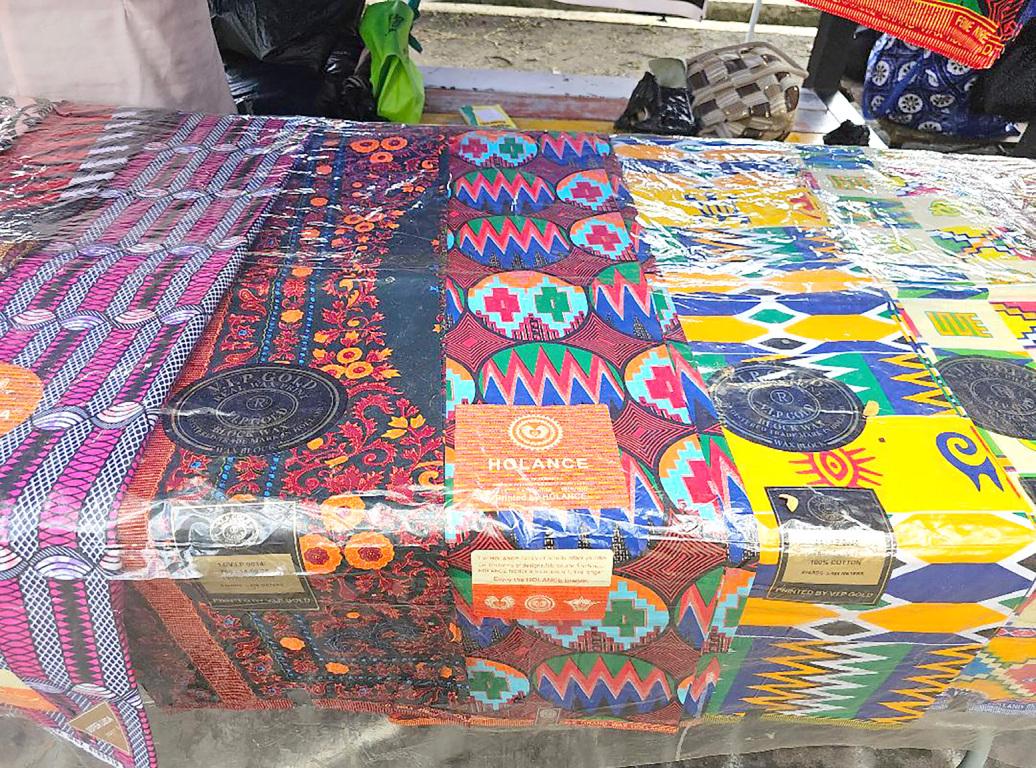

This year, she had to be present too, with a booth offering raw materials—cloth made of African prints in different colours and shades. She related that the cloth is of good quality, made from 100 percent cotton, and it can be used to make many outfits of choice as the preferred clothing for Emancipation Day on August 1. Stewart explained that when she was at her prime, she used to enjoy visiting the National Park to participate in its activities
for Emancipation.
She would vend the same kind of fabrics and fresh, homemade fruit juices, but this year, she was unsure whether she would be able to attend.
However, Stewart was present every day at Main Street, Emancipation Village, to sell her African prints, locally made fruit juices and to showcase the top-quality products as well.
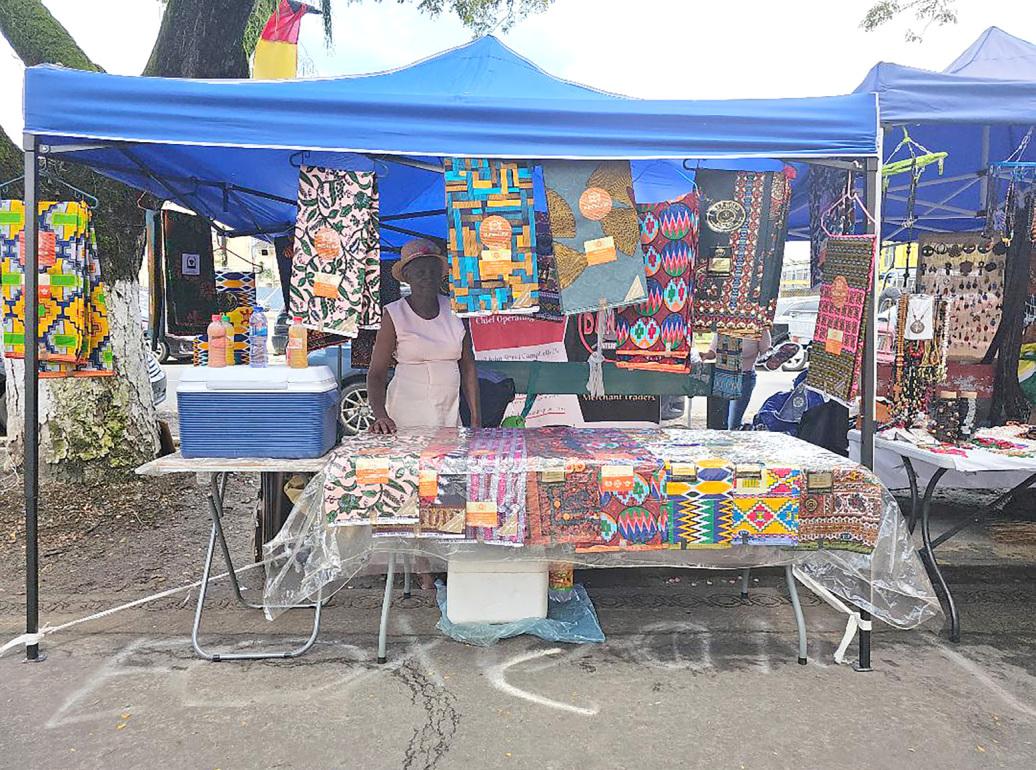


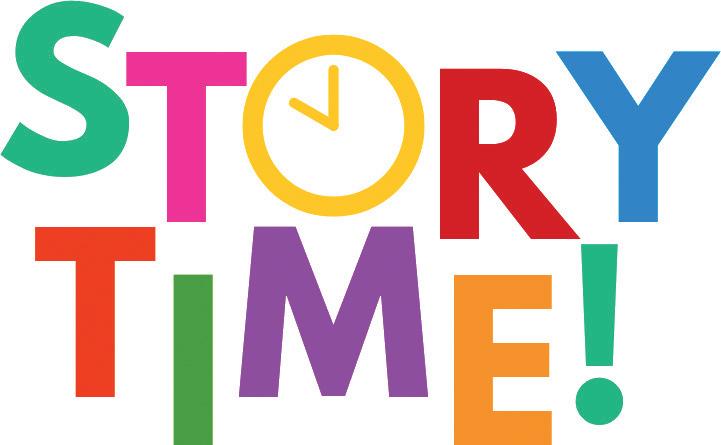
By An Anonymous Guyanese Writer
DRIFTING back lazily below the white seaplane with red and white wings tipped with deep yellow are square miles, square miles of turbulent rainforest. Down below, a vast clearing of felled trees is no more than a bald spot in an immeasurably vast carpet of green.
Down below pass the Essequibian hinterlands. The pilot looks down and remembers the single-engine aircraft that crashed with three English geologists. Two weeks ago, somewhere in the vast region below. No wreckage has yet been found.
He looks over to his co-pilot, who sits with his head thrown back, eyes closed, and lips moving silently as the monotonous sound of the seaplane’s radial engines wafts over him. The pilot checks the time: Five thirty. The thought of the rainforests doesn’t worry him much, save for vague
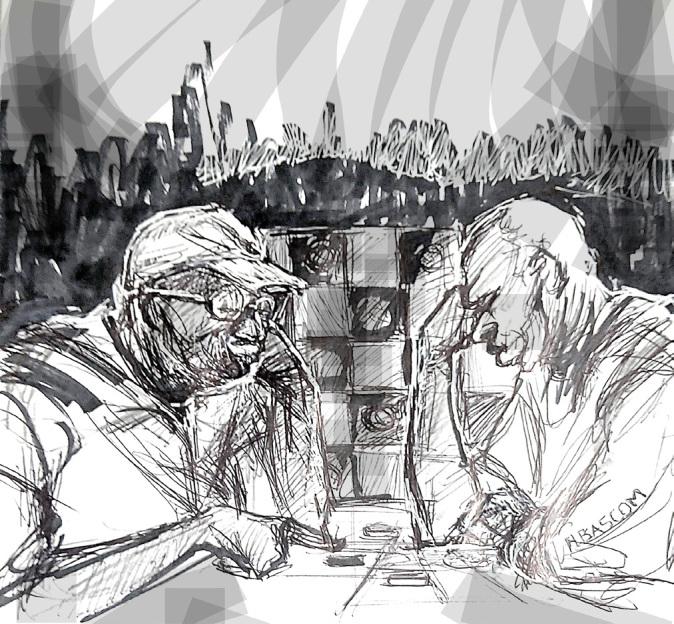
apprehensions that one day his turn may come to sink below the leafy sea drifting back beneath their feet.
He forever hopes that, should it happen, he will survive the crash and be found.
Maybe every dead “bush pilot”, whose remains lie undiscovered below, harbored the same hope.
His co-pilot blurts, “Bar!”
and opens his eyes to smile triumphantly: Bartica, a vast, populated clearing in the green Wilderness through which a great river courses, is coming up. A riverine settlement.
The eyes of the Amerindian child, which, a moment ago, were watching two elderly black men playing a game of” draughts are now

raised to the sky. The scheduled red and white seaplane moans across the sky above him. The movement of the boy’s head follows it in its circling descent to the river. He runs off to witness the touchdown.
###
Fifty-five-year-old Josiah Smith sits at a game of draughts with his neighbor, who is slow at deciding moves. Smith waits.
His eyes, misty with cataracts, peer intently from the burnt, crease-lined landscape of his face and gradually shift from the checkered playing board to the great white
house on the hill with the short-bladed, emerald green grass.
“You know something, Mase’n ?” he says to his contemplative friend.
“Oh, God, Smitty!” snaps Mason. “I thinkin’ man!”
Smith smiles mischievously and mumbles something apologetically. Passing a calloused palm around the nape of his neck, he feels his grey negro’s hair and shakes his head. A sound, rising and falling, a growling sound, almost animal, comes over to the two men at their game. They pay no heed. The sound of the seaplane, taxying on
the brown-faced river, has become for them just another sound at this time of the afternoon.
Mason makes a move. Smith makes a move. Mason grins. Smith’s brows furrow.
“Watch this, Smitty!” watchin’.”
“Bam! Bam! Bam! Three shot, Smitty!”
“You mean is done the game done?” says Smith in mock amazement.
“You askin’?” Mason, filled at last with victory, closes his eyes and laughs like a story-book witch, and then slaps his left knee with Turn to page XVII


ALTHOUGH we may not realise it, the sun greets a new version of us every single morning. When we go through the experiences of each day and fall asleep, we never wake up the next morning as the same per-
OVER the course of our lives, all human beings unfurl and bloom like the creased pages of a diary that is slowly being filled with fresh stories. We allow life to embrace us, and, in return, we are granted the space to be who we are. As we grow up, the gentle discomfort and pressures of creating your identity fade. Our skin becomes our armour, and our heart fills with the satisfaction of being able to live our lives just as we had imagined in our
son we were the night before. Our experiences have a transformative effect on us. We come alive each day with new opinions and new ways of approaching life.
childhood dreams. Even those who may not yet have attained their goals are comforted by the freedom of choice—the grace of knowing that, even though they have not reached their destination, they still have the power to steer themselves towards it. The reward for those who are true to themselves is the ability to look into a mirror and respect the person they see. They shall experience no loss or failure that can take away this ability from
them.
This, in fact, is the very
essence of being alive. Our ability to wake up in the same world with a new way of seeing it fuels our hope for the future. Eventually, we accept this growth and learn to depend on it to carry us towards a future that we
Recently, I discovered the story of Narcissus from Greek mythology. Narcissus was a young man who was prophesied by a prophet to live a long and fruitful life as long as he did “not know himself.” He was known to be extremely handsome but prone to rejecting the affections of others, no matter how sincere they were. Then, one day, as he was travelling through a forest, he came across a body of water and caught his reflection glimmering
deserve to have.
Yet, growth can be a challenging process at times. Growth can suddenly become a suffocating imposition when you are not given the space for it to take place. It becomes
on its surface. He leaned forward and watched as his own perfect face peered back into his eyes. Then, he remained there, falling in love with his own reflection until he passed away from thirst and starvation, unable to tear his eyes away from it. The spot where he died was marked by a bright yellow flower known as the Narcissus. We now commonly refer to the Narcissus flower as the daffodil.
a difficult and unwelcome feeling when you are in an environment that does not accommodate it sufficiently.
The myth of Narcissus is a fascinating tale


It can make you feel as though you are swimming in a pool of viscous oil when you desperately need to reach the shore. It can make you feel like a seed that is ready to burst open with life, but has no space for the roots to grow.
When we realise that we are in such a position, our immediate instinct is to remove ourselves from the environment that is not allowing us to grow. Of course, this is a quick and efficient solution. However, this is often the wrong move.
that offers us a valuable lesson. It teaches us the dangers of self-absorption and the losses we may face by refusing to open ourselves up to the love and affection of others. We may speculate that perhaps if Narcissus had already been in love with another person, he might never have been inclined to fall so madly in love with himself. It also shows us that our destiny is rarely within ourselves. We may spend a lifetime preparing ourselves to be better people, but this preparation will not mean anything if we do not use it to change the world for the better. Beauty and good character have no power if their positive influence does not extend beyond our own boundaries.
By putting ourselves in a new environment to facilitate our growth, we are teaching ourselves to restrict our growth only to environments that are comfortable for us.
The choice to change the world rarely comes in a noble or attractive package. It is often represented by a path that no one wants to take, fearing they will be trapped in an uncomfortable life.
proud of, it is quite easy to forget to look around us at the people who are fuelling the successes and the joys we are experiencing.
Yet, if we teach ourselves to be strong enough to grow in any situation that we are placed in, we can transform that uncomfortable path into a road that our peers and successors can take to join us in a better world.
The seeds that do not wait patiently for comfortable environments and perfect conditions bloom into bright flowers, even when they find themselves in the tiny spaces produced by cracks in concrete roads.
The affections of others are a gentle influence. These affections can fade away and disappear long before we glance around and begin to notice that we stand completely alone. Yet, the emptiness they leave behind when they are gone is a mighty force. Those who have developed a strong sense of identity and learned to love themselves deeply will not be limited by the failures they experience or the losses they face. However, they are still quite open to the possibility of grief.
This means that when we inevitably encounter a situation that we cannot leave nor comfortably grow in, we end up stagnating there.
We often fail to teach ourselves resilience and perseverance, so we become stuck living a dissatisfying and unfulfilling life because we simply do not know how to overcome it without the option of escape.
The process of building an identity—of “knowing ourselves”—is necessary as we progress through our lives. Attempting to live without being comfortable with who we are is much like living in a space where we cannot fully walk, stretch, or look upwards at the sky. However, it is also quite easy to fall into the lonely path of knowing no one but ourselves. As we lean forward to watch our shimmering reflection grow and transform into something that we are
When we are stuck in a dark room, the only obvious way to see light is to leave the room.
However, could you imagine how powerful our generation could be if we could become resilient enough to see rainbows even when we are trapped in a dark room? Could you imagine how much change we could bring to the world around us if we thought about creating light in the dark room, rather than seeking it outside? Extricating ourselves from difficult situations may facilitate our growth, but it can never truly give us the power to change the world.
We have not been afforded the gift of being born into a perfect world. We have not been given the privilege of holding a world unshaped and unmarred in our hands. Nevertheless, neither of these facts has made us any less powerful than we can be.
In a similar manner, it is possible for our own influences and connections to the world to fade away, just like the affections of others. When we fail to acknowledge and reciprocate the love that others proffer us, we will eventually lose it. If we stop reaching out to the world with kindness, we will ultimately lose our ability to impact it.
Neither of these facts affects the extent of impact we can leave behind in this imperfect world. Real growth does not hesitate and wait for an escape. Instead, it bursts forth through stone and viscous, black oil to become what it is meant to be.
Each of us holds a massive power within us. Let us allow this power to extend beyond us so it can reach parts of the world that truly need it.
As we continue to grow, most of us will have the opportunity to leave an environment that may be restricting us.
Those who choose to leave will likely have a comfortable and peaceful life. However, those who are strong enough to stay will find themselves fighting a noble battle to make their current environment a place that sustains their growth.
Perhaps one day, they may wake up and realise during this battle that they have already become the person that they have always wanted to be—and in the process, changed the world as well.

SHE stood on the wharf, a cold night in June, looking out at the dark river, sounds of the crashing waves, like the tempo of drumbeats. A beautiful woman she was, but the deep sadness in her brown eyes and the tears portrayed someone who had lost something precious in her life. Her heart was crying like rivers flowing, the pain like the prick of sharp thorns as she stood there by the riverside, cold and lonely, hugging her little girl close to her body.
“Would I ever see you again, my sons?” she cried quietly.
From a bar along the Stelling Road, Bob Marley’s soulful lyrics drifted with the wind.
“No woman, no cry.”
The boat captain shouted to all passengers, “We are ready to go now!”
And she stepped into the boat, beginning her journey to one of the islands, then further to another South American country where an old friend awaited her. She looked back at the wharf as the boat pulled away, hoping to see her sons—that this was all a mistake, that she wasn’t leaving—but no one was there.
A cry from deep within escaped her lips, the intense pain sending a shiver through her body, but she pulled on her inner strength to stay in control of her emotions for the child in her arms.
Fifteen years ago, she had left her father’s home as a young, radiant bride, happiness in her heart, as cool and fresh as the rain. A new life in the city with her handsome groom filled her with excited hope. Fifteen years of marriage now lost and meaningless, for today she was running away, in the dark of the night, a sleeping child in her arms—a sad and broken woman.
A farmer’s daughter, Pri-
ya had been, from a small island in the Essequibo, a country girl, simple and innocent. The river was her playground, and it was there he had seen her from his small yacht as she rose from the water like an illusion, her long black hair cascading down her back.
A few days later, she was surprised to see him with a group of businessmen and a junior minister visiting the island, wanting to know how they could assist the farmers. She saw him on his walks about, watching him as he met with families who needed assistance, but kept out of sight until one day, he came to visit her humble home at her father’s invitation.
He had impressed her young mind with his pleasant personality and modern good looks, but now, face-to-face with him in her home, she was at a loss for words.
Sanjay had smiled at her, and the admiring look in his eyes had sent a strange sensation to her heart. But she was like a wildflower, a hidden beauty, and on this island, fairytale love stories did not happen. But all that changed when, just six months after they met, he asked her to be his wife. Her family was elated, the people of the village jubilant, and the tears of joy in her father’s eyes touched her deeply when she said ‘Yes’ to the proposal.
She had given her love to the rich young businessman, and his promises to love and care for her, she had kept tied to her heart. He was true to his words, and happiness for her was evident in everything: the bliss, the togetherness, and the joy of welcoming their first baby. But a few years after her second son was born, a change began—something unexpected.
It began with a haughty tone and a sudden burst of anger, for which he was
quick to apologise. At first, she attributed his changing behaviour to problems with
his business, given that one of his storage bonds had burned down recently, so she
let it go. But Sanjay’s behaviour got worse, and when he stopped apologising, she
knew


From page X
that in some households, sleep is highly valued and encouraged. In fact, sleep can be so sacred for some—any noise or interactions in the house are only entertained once everyone is wide awake. I’ve always admired this type of dwelling amongst family members.
In contrast, some households use sleep as a means to control or even shame others. Children are sometimes hastily woken up if they sleep in on weekends, or people are shamed and called names for prioritising rest in their households.
Something so vital to our overall health should not be seen as a privilege—it should be seen as a necessity. Anyone who tries to
take that necessity away from you through coercion, cultural pressure, guilt or shame can be using this necessity to manipulate you.
Like other forms of abuse that are often more visible or verbalised, I hope we seriously consider and understand how sleep deprivation can be used as a tool of control. It is a slow degradation of one’s willpower and is often confused as “family issues” or “work culture.” Sleep is essential to human life, and if any action towards you suggests otherwise, stay clear of those people and their motives. Your “zs” are essential and do not let anyone tell you otherwise.



From page XIII a thumbless left hand.
Josiah Srnith’s home stands a little way from the shade of the old mango tree under which he and his friend pass away the time of another afternoon. It is a small, neatly built, unpainted one-bedroom wooden house standing on short, thick wallaba-wood stilts.
It has two flights of stairs with a maximum of four treads each. One stair leads to the back door and the kitchen, where bluish coal-pot smoke pours through the gable ends of the kitchen roof.
The smell of breadnuts, steaming after being boiled, comes with it. The other stair leads to the front door, which has a horseshoe nailed onto it. Many of the locals believe that horseshoes ward off evil spirits. The windows are of wood.
They have no glass panes and are like small wooden doors opening outward. The thatched roof is made of neatly plaited leaves from the troolie palm. There is a rebellious wailing. Smith knows it is his oneyear-old grandson, Michael Rayburn Apata. It is not un-
common to hear Josiah Smith saying: “Michael Rayburn Apata … yes, that is a name ah really like.” The wailing turns into a rebellious scream. “Jane!” the old man snaps. What happen to Rayburn?”
“Aw, man!” his wife snaps back. “Play your draughts and mind your own bloody business! You too damn fussy over this disgusting boy!”
“The woman too right,” mumbles Mason. But once more, Smith is contemplating the great white house on the hill with the mowed green grass.
It is a neatly built wooden structure that stands on concrete pillars. The roof is made up of galvanized sheet metal that gleams under the sun’s rays.
Yellow light glints oil on the glass panels of the many windows; each has a panel of mesh that keeps out the large forest insects that are attracted by the light that will burn from the powerful bulbs that go on when the generator, in the little shack at the back of the great white house, throbs at night. Josiah Smith remembers that he will


have to get kerosene oil for his lamps.
A white woman with yellowish hair and a blue apron over her red-flowered skirt comes out on a back verandah of the executive house on the hill- She is taking bits of clothing off a line on pulleys; as fast as she unclips a few articles she, she pulls and more dry laundry are there for her to unclip and drop into her yawning clothes basket decorated with Amerindian designs.
Josiah Smith is unconscious of his slightly gaping mouth and the wrinkle of wonder on his face.
“Mase’n…”
“Eh? Wha’?”
“Like you was dozin’ off man?”
Mason yawns.
“Mase’n, you ever work at places like Matthew’s Ridge, Tumatumari, or Mackenzie?
“Man, Smitty, how you think me lose me big finger?”
“But Mase’n … you ever
notice how in all them places the people and the other upper tenths they’re always livin’ on de hills?”
Michael Rayburn Apata screams again, shrilly.
“Jane! What you beatin’ that boy for, eh?”
“Hear J.S.! They say grandmothers does spoil children! But I not going to spoil this one! Ah will clap hands on his little black backside every time he slip! He like to play with fire!”
“You right, Mistriz. Spare
the rod an’ spoil the chile,” mumbles Mason; then, with his palms resting in the small of his back, he raises himself with apparent effort. “Smitty, I goin’ home, man. … I goin’ an’ res’ Gawd material lil’, you know, this body God give me.”
“A’right Mase’n boy.”
And with that, Josiah Smith takes up the draughts board and the little varnished box with the black and white playing pieces arranged within it.


From page VI
scratch all sorts of beaded jewellery—handmade to sell.
However, the better part of her days is spent at her sewing machine, creating outfits and tailoring clothes for customers.
Being a school dropout, Taylor said she attended high school for only one term, after which she had to leave due to financial difficulties.
She was living with her grandmother, a pensioner, whose earnings were minimal. She was an only child and grew up with her grandmother, after both her parents tragically died when she was just three years old. Her grandmother did her best to raise her in the right way and encouraged her to learn a skill to make a living.
The pensioner related that she would source her materials at the raw-clothing stores in the city—Shamdas Kirpalani, on Regent Street—and
at China Trading, on Robb Street, for other materials for her arts and crafts making.
Taylor lives with her three minor children and has been participating in the Main Street activities for Emancipation for the past six years.
She described her sales as being fair this year, as her prices are unbeatable, and she offers a variety of outfits to choose from—quite a collection she has in stock at her booth on the Main Street Avenue.
Taylor said she has dresses, scrunchies, scarves, and kids’ outfits in many different colours, and would use her time wisely.
The elder disclosed that her husband passed away during the pandemic. He had diabetes and also contracted COVID-19. Her adult children support her when the need arises, as they are also trying to establish themselves.
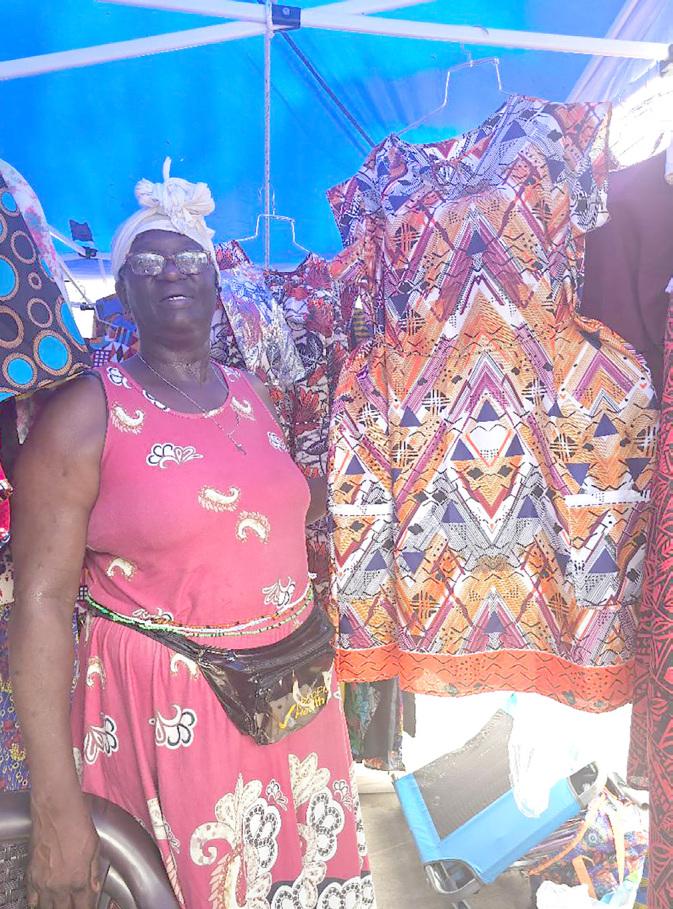



















From page XV understand how or why it happened—his possessive attitude, restrictions on her social life, his anger and aggression that pushed her into his shadow. She tried to talk to him, to understand the disturbing change, wanting to know if she had done anything wrong, but dialogue was rejected. And as Sanjay’s business and wealth grew,
so did his dominance and arrogance. She spoke to his family and close friends, but no one seemed willing to tell her anything until one friend pitied her suffering and explained to her that the change she was seeing was the person he had been before he met her. He had always been an angry, arrogant young man who abused his girlfriends
until his father, who was fed up of bailing him out of trouble, gave him an ultimatum to change or he would disinherit him.
A shocking revelation! How could she not have known?
His father’s signing over a bit of wealth and properties to him had brought his old personality back to the fore. The old man’s regrets were


too late, and Priya had felt trapped and helpless. She now had to live to survive, for her children were her life, and she wouldn’t be able to live apart from them.
Like shattered glass, her dream broke, and a nightmare cloaked in black took the reins of her life.
One day it would be insults and beatings, the next day flowers. He gifted her with diamonds and designer clothes for the world to see, but the diamonds didn’t feel like her best friend, and the clothes didn’t make her feel special.
The years went by, and she continued to be a good wife to her husband, a wonderful mother to her three children; her love for them was the reason she stayed. So she forgave the insults, excused the beatings, and accepted the flowers.
She lived with the hope that one day she would find a way out—but not without her children. One morning, as she laid the table for breakfast, her elder son came down, a troubled look on his face. She knew he had heard his father abusing her last night. It was not the first time, but he was now thirteen, and he could speak on the issue of her tormented life.
“Mom, I think you should go,” he said softly.
“What?” she looked up from what she was doing.
He looked at her, the bruises on her neck and arms, the cut on her lip.
“How long will you live your life like this?”
She didn’t answer, her
lips quivering, and she tried not to cry.
“I know you have stayed and tolerated it because of us,” her son said. “But Arvind and I are now big boys—we can take care of ourselves. Take Ashani and go away somewhere far.”
“I can’t. How can I live without my sons?”
He didn’t answer for a while, choking back the tears.
“We’ll always be here for you, Mom. But if you stay, he can kill you one day. I don’t want to lose you. Please don’t stay here. Arvind and I will stay, so he won’t have three reasons to hunt you down. We will find you one day, to be in your life again—rather than we have to take flowers to your grave.”
She hadn’t heeded her son’s plea, not knowing how to leave them, where to go. But one night, three months after that morning, her husband almost killed her in one of his rages, and seeing the terrified look in her son’s eyes, she knew how right he was. They would always be there for her, and one day they would come for their mother.
As the boat sped through the rough waters, in her mind, she put her hand to her heart and untied the knot, letting loose the false promises into the wind. She closed her eyes, unsure of the new life that awaited her, as destiny forged a new path for her, love having lost its way.
Would it ever find her again?
A question only fate would be able to answer.






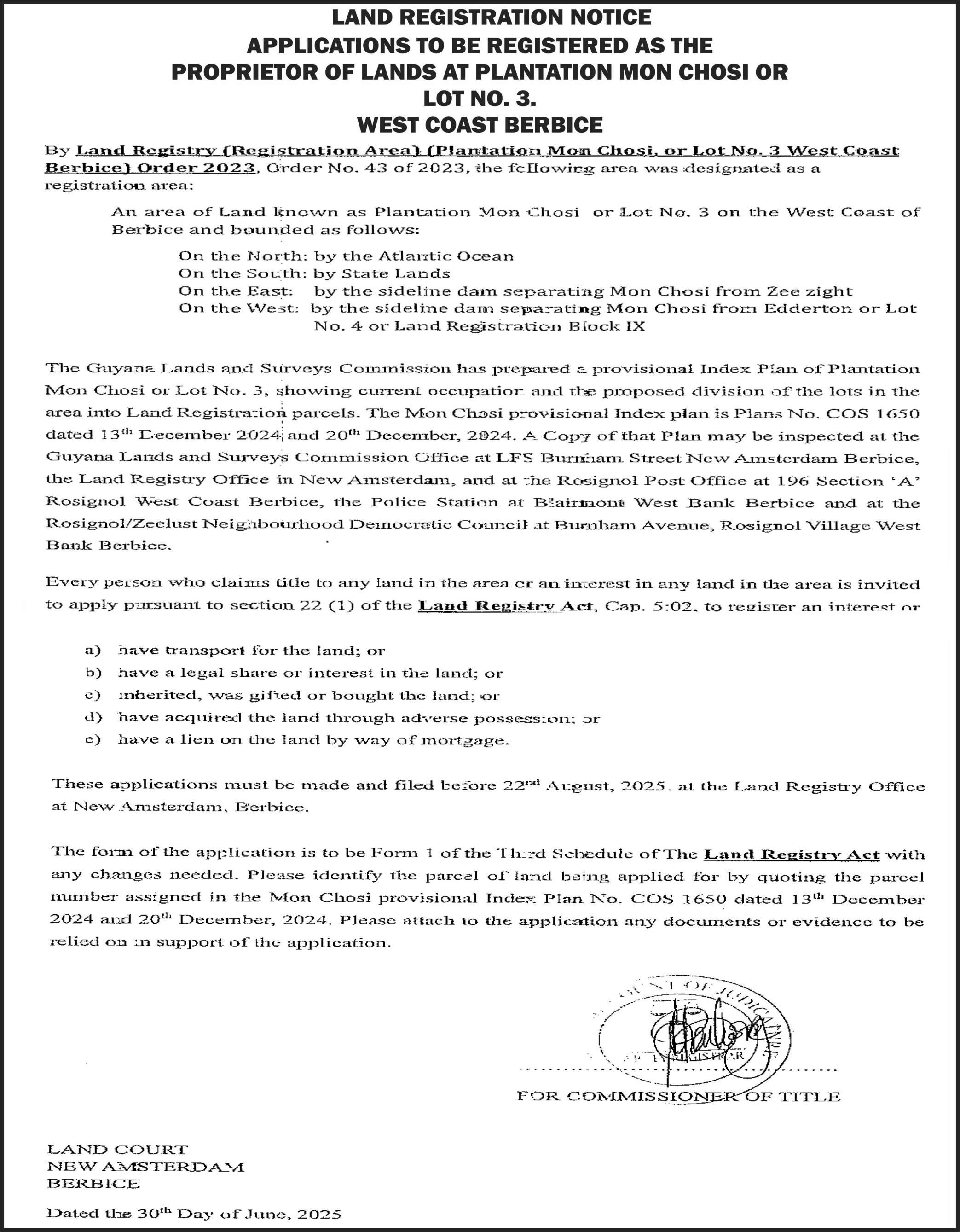




















Welcome dear reading friend. As you read any given text, you will notice how the author provides the central point on his topic which, with understanding, you will eventually be able to express to yourself. The core message runs through the entire passage and its clues specifically cover everything that you read. Clues are found in places
such as the heading and title; introductory paragraph or first paragraph, last paragraph, and opening and closing sentences. Be wise.
Love you.
Reading Comprehension
Final reminder: Your examination in reading comprehension requires your readiness in the following areas:
1) Reading and giving responses: working with questions based on passages emanating from novels, short stories, biographies, diaries, and letters.
2) Working with forms of expository extracts: reports, instructions, newspaper articles, notices, texts of speeches, and transcripts of conversation.
3) Working with extracts from argumentative or per-

August 3, 2025
suasive texts aimed to convince the reader of a specific viewpoint: essays, articles, opinion pieces from journals, advertisements, and speeches or letters to the editor.
4) Working with visual extracts: tables, cartoons, and diagrams.
5) Working with multiple-choice items, coining responses in sentence and phrase forms, and using continuous writing. Each kind of passage necessitates some specific core question(s) to be dealt with.
As you do the reading comprehension exercise below, read quickly and actively. Note the outline of the passage as you go, link the information in your mind, and connect it to your own experience. You should also be able to grasp a solid understanding of the main idea this way, be in a good position to answer any given questions, and to put the passage in your own words.
Instructions: Read the following passage and answer all questions based on it.
As cars became more popular, their effect on population distribution was likewise profound. Unlike railroads, which helped concentrate the population in cities, the automobile distributed to urban sprawl and, eventually, to the rise of suburbs. People no longer needed to live near railroad lines or within walking distance of their jobs, and so were drawn to outlying areas with less congestion and lower property taxes. Business districts became less centralised for similar reasons.
Sadly, this movement toward the suburbs exacerbated social stratification. Since cars were initially affordable only to wealthier people, the upper and middle classes lived out of cities. Many businesses followed, attracted by the educated, well-trained workforce.
As good jobs also moved out of cities, the people who remained were further disadvantaged and even less able to leave. Though few anticipated it in the heady early
The grave’s a fine and private place, But none I think do there embrace.
ANDREW MARVELL (1621-1678) To His Coy Mistress
days of suburban growth, by the century’s end, cars had helped to further entrench social divisions in America by making possible great physical distances between rich and poor.
1. Give the meaning of each of the following concepts: more popular; population distribution; helped concentrate; urban sprawl; less centralised; exacerbated social stratification; further disadvantaged.
2. What equal effect did the popularity of cars have on population distribution?
3. The popularity of cars and that of railroad usage were opposed. How?
4. What freedoms did cars bring to wealthy people?
5. What limitations or disadvantages were brought to uneducated and less wealthy people?
6. The business places have become less centralised. Why?
7. What attracted those who could afford to move to outlying areas?
8. Write a summary of the passage.
Reading a poem for understanding
Note: To understand a poem, you need to read it very many times, at first silently and then loudly. This helps you to grasp its overall meaning and rhythm. Poetic language is marvellous and enjoyable.
Pay attention to its language, imagery, and form. Consider how they contribute to the poem’s message and mood. You are free to use any resources to assist with
your progress.
One source on poetry says that: 1) Figurative language is language that uses words or expressions with meanings that are different from the literal interpretation, and 2) Imagery is the use of vivid or figurative language to represent objects, actions, or ideas, and appeal to our senses. [You will hear better about these in our next issue.]
Here are three stanzas from the poem “As I Grow I Will March Not Shuffle”. I will be a nonagenarian nonconformist, armed with a ballpoint pen and a hand that shakes with rage not age at politicians’ latest crimes, in strongly worded letters to The Times.
I will be a centenarian centurion
And allow injustice no admittance
I will stage longstanding sit-ins.
My mobility scooter and I will move for no-one. And when I die I will be the scattered ashes that attach themselves to the lashes and blind the eyes of racists and fascists.
(Brian Bilston’s “As I Grow…”)
1. Give your understanding of the following terms: nonagenarian nonconformist, strongly-worded letters, allow injustice no admittance.
2. Point out one figurative expression by quoting and naming it.
3. Explain three lines of imagery – one from each stanza and tell of their effectiveness.


XYLITOL, which sweetens some chewing gums, can kill certain bacteria found in saliva which contribute to tooth decay. The merits of chewing gum in relation to preventing tooth decay are well publicised.
Literature and TV advertisements refer to the buffer effects that saliva has on dental plaque, and everyone knows that chewing gum provokes salivary flow. However, there is a new mechanism by which chewing gum helps prevent caries.
That aspect is related to the actual composition of the chewing gum. Several studies of humans have examined the effects of partial or total substitution of sugar by xylitol in chewing gum. Xylitol is a sugar alcohol found in plants. It tastes sweet but is not fermentable sugar. Although it is chemically classified as an alcohol, it does not behave as such.
Tooth decay is an infectious disease significantly influenced by diet and the pattern of its consumption by the host. Its dependency on the ingestion of fermentable dietary carbohydrate (sugar) is beyond question.
However, tooth decay does not occur in germ-free animals, regardless of their diet, thus establishing it as a fundamental microbiological disease. Based on these facts, researchers are working consistently to identify new ways to combat tooth decay.
For centuries, it has been known that salivation contributes positively to oral hygiene by literally washing away the colonies of caries-producing germs that constantly proliferate on the tooth’s surface. The practice of chewing gum originated with the act of keeping a smooth pebble in the mouth. Bad breath may be resisted
in this way.
As part of the famous Turku Sugar Studies, a comparison of caries experience was made among three groups of adults whose diets consisted of foods with fructose substituted for sucrose, xylitol substituted for sucrose, or the usual sucrose-containing foods, which were consumed exclusively. The results, after two years, supported by a variety of microbiological, salivary, and other observations, demonstrated a dramatic reduction in decay incidence—about 85 per cent compared to the ordinary sugar diet.
Studies clearly demonstrate the non-carcinogenicity of high xylitol (65 per cent) content gum. They also suggested that such chewing gum was a caries inhibitor, despite the limited time, quantity, and exposure of the dentition to the gum. Of course, it should be recognised that chewing gum would seem to be an ideal vehicle for delivering caries-inhibitory substances at relatively high concentrations to the surfaces of the teeth, although the quantities ingested may be minimal.
The factors which are conducive to tooth decay are remarkably localised to the surfaces of the teeth. They are plaque, its bacterial population, the acid produced from sugar in the plaque in juxtaposition to the tooth surface, and the sugar challenges the plaque flora. Finally, certain factors should be involved with chewing gum for the sake of oral hygiene. The chewing gum must contain xylitol sweetener instead of sugar. The content of xylitol should be high, that is, over 60 percent, because it is the xylitol that specifically attacks the germ (Strep mutans), which

causes tooth decay.
The gum should be chewed for at least 20 min-
utes a day in total. This implies that one may chew the gum four times for five min-
utes throughout the day to achieve the maximum effect. By the way, xylitol is

